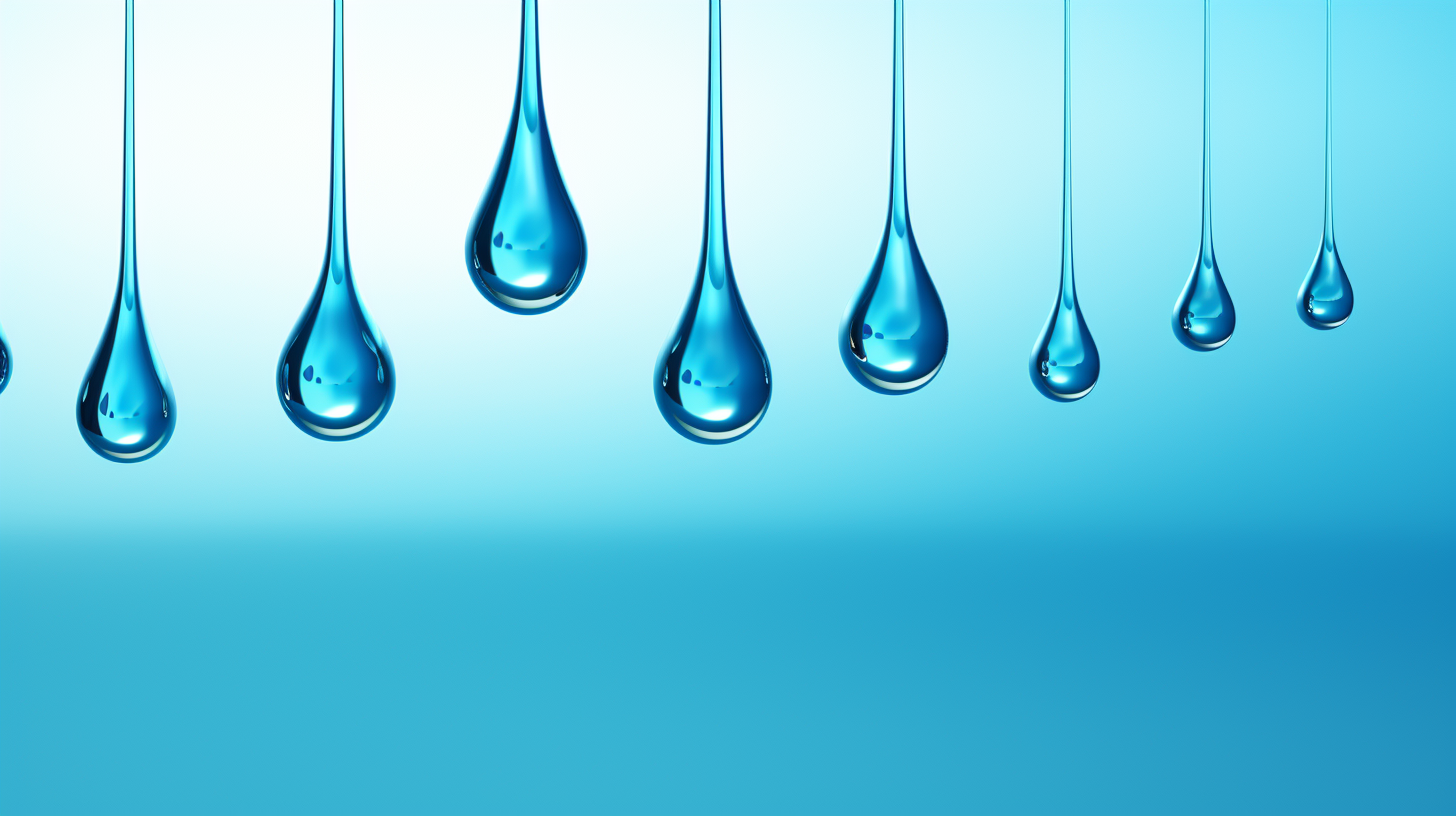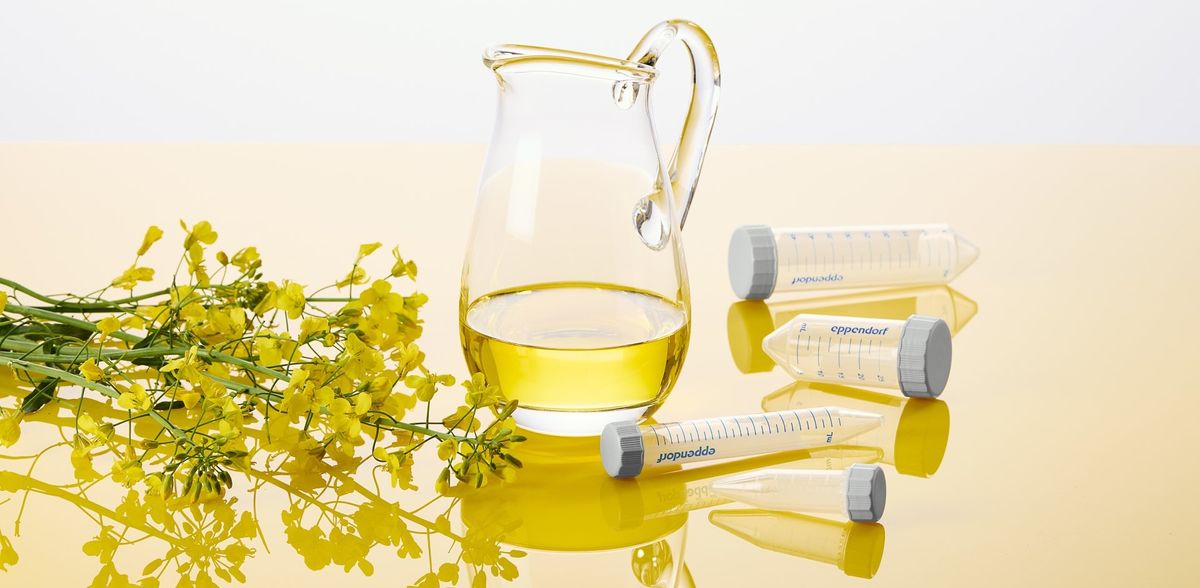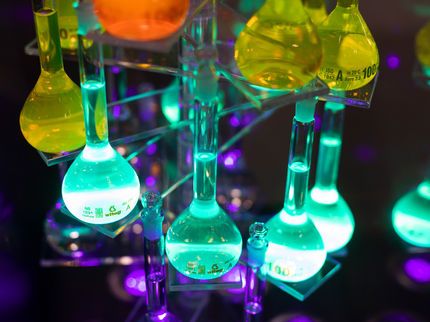Eppendorf and Neste forge strategic partnership to develop new line of renewable lab plastics
A sustainable choice for labs
Eppendorf SE Hamburg announces that it has joined forces with Neste to advance the development of lab products made with renewable raw materials. Working together, the strategic partnership made it possible to create a new line of renewable plastic lab consumables: Eppendorf consumables BioBased. The consumables, e.g. tubes, are manufactured using Neste RETM, a feedstock produced from 100% renewable raw materials, for example used cooking oil. The consumables thereby represent a sustainable choice for labs seeking to reduce their carbon footprint by replacing fossil crude oil in the value chain. The launch of the first products of the new line will significantly contribute to the life science industry’s transition towards a more sustainable future.
The life science industry is a substantial consumer of single-use plastics, and as the world faces growing environmental challenges, Eppendorf and Neste recognize the urgent need for more sustainable solutions. Eppendorf’s BioBased products perform exactly as their renowned fossil oil-based plastic consumables, meeting the rigorous specifications required for scientific experiments. The current portfolio comprises Eppendorf Tubes® with screw caps plus epT.I.P.S.® BioBased filter pipette tips, made of a certified polypropylene based upon renewable raw materials. Neste’s renewable Neste RE feedstock is used to produce the tubes, while the screw caps and pipette tips are made in cooperation with other suppliers. A mass balancing approach is applied to allocate the renewable raw materials to the products.
Following the successful launch of the first range of Eppendorf Consumables BioBased, the collaboration aims to continue driving the innovation and adoption of more sustainable materials in the laboratory and scientific research sectors. With Eppendorf’s extensive scientific consumables manufacturing experience and Neste’s expertise in renewable products, the initiative is well placed to address sustainability pressure points throughout the entire value chain – from the renewable raw materials to the manufacturing of the final product. In addition to renewables, the partners will also evaluate options to leverage chemical recycling to both recycle Eppendorf’s lab consumables and enable recycled content in the consumables’ production.
"We are thrilled to be joining forces with Neste to bring renewable plastics into the lab," said Brigitte Klose, Global Marketing Manager for Consumables at Eppendorf. “At Eppendorf, we are committed to supporting our customers in their efforts to become more sustainable, and by combining our expertise with Neste’s, we have been able to deliver high-performance sustainable plastic consumables that can help the scientific community to reduce its carbon footprint. This collaboration with Neste is another substantial step forward in our strive towards sustainability, and we look forward to continuing pioneering together in the development of renewable alternatives.”
"Laboratory applications come with high quality requirements for the materials used,” said Maria Carcolé, Head of Brand Owner Management at Neste Renewable Polymers and Chemicals. “The cooperation with Eppendorf shows that despite these requirements, a transition to more sustainable materials is already possible. It just takes will and cooperation to get there.”
By using renewable materials in their lab plastics, labs and corporations can reduce their climate impact and make steps towards a more sustainable future. In continuing to research and develop more sustainable lab plastic alternatives, Eppendorf and Neste will provide scientists with practical solutions to improve sustainability, and contribute to the defossilization of the life science industry.
Most read news
Topics
Organizations
Other news from the department business & finance

Get the analytics and lab tech industry in your inbox
By submitting this form you agree that LUMITOS AG will send you the newsletter(s) selected above by email. Your data will not be passed on to third parties. Your data will be stored and processed in accordance with our data protection regulations. LUMITOS may contact you by email for the purpose of advertising or market and opinion surveys. You can revoke your consent at any time without giving reasons to LUMITOS AG, Ernst-Augustin-Str. 2, 12489 Berlin, Germany or by e-mail at revoke@lumitos.com with effect for the future. In addition, each email contains a link to unsubscribe from the corresponding newsletter.
Most read news
More news from our other portals
See the theme worlds for related content
Topic world Pipetting
Pipetting is one of the most basic yet critical techniques in the laboratory. It enables the precise and controlled transfer of liquids, which is essential for accurate measurements and reliable results. Whether in DNA analysis, cell culture or biochemical assays, correct pipetting significantly influences the quality of the results.

Topic world Pipetting
Pipetting is one of the most basic yet critical techniques in the laboratory. It enables the precise and controlled transfer of liquids, which is essential for accurate measurements and reliable results. Whether in DNA analysis, cell culture or biochemical assays, correct pipetting significantly influences the quality of the results.
Topic World Sustainability in the laboratory
The main topic of sustainability in the laboratory highlights innovative approaches and technologies that reduce the ecological footprint in laboratories. These include energy-efficient equipment, resource-saving consumables, green chemistry, recycling initiatives and sustainable laboratory management solutions.

Topic World Sustainability in the laboratory
The main topic of sustainability in the laboratory highlights innovative approaches and technologies that reduce the ecological footprint in laboratories. These include energy-efficient equipment, resource-saving consumables, green chemistry, recycling initiatives and sustainable laboratory management solutions.





























































